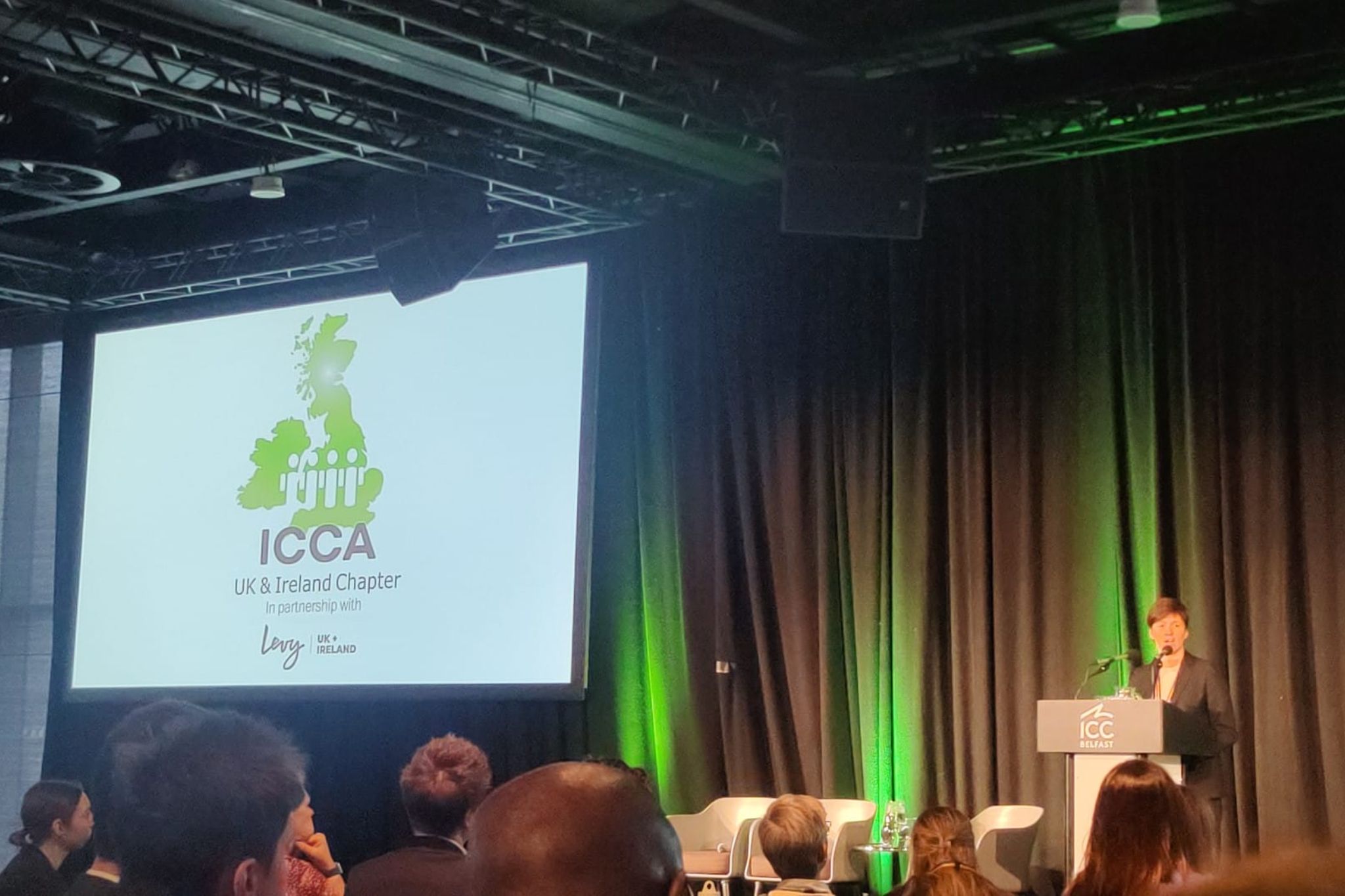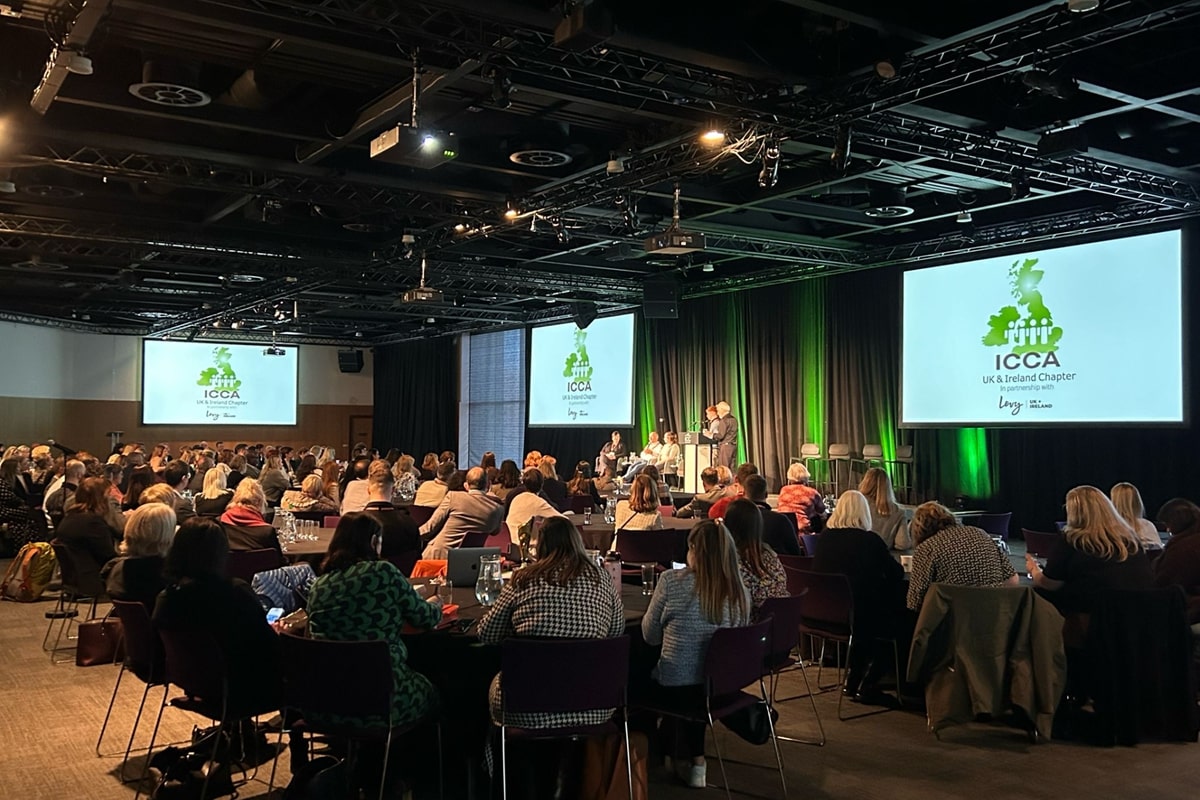Keynote sessions focused on crucial topics including gender equality, sustainable events, and building value and impact within the industry as well subjects such as the ethical implications of AI in event organising.
The agenda for this year's ICCA UK & Ireland Annual Conference was carefully curated to spotlight different ways in which the sector could collectively innovate and operate in a way that contributed to the success of the United Nations Sustainable Development Goals with the aim of making the world a better place for future generations.
Keynote sessions focused on crucial topics including gender equality, sustainable events, and building value and impact within the industry as well subjects such as the ethical implications of AI in event organising.
A standout session for me was The Path to Sustainable Events session, which featured Kathleen Warden, Scottish Event Campus (SEC), Kate Holliday, GES, Kevin Watson, Levy UK&I and Jac Callan, Visit Belfast. Each panellist had an opportunity to discuss their organisation's approach to sustainability, timelines, experiences, and the chance to share practical tips and advice for businesses at any stage of their sustainability journey.

ICCA UK&I Conference 2024
The ICCA Big Debate session
The ICCA Big Debate session has become an instant favourite of the ICCA UK & Ireland Chapter Meeting. This year's topic of discussion was whether the carbon reduction efforts of the conference industry to date merely greenwash a sector that is inherently unsustainable.
The debate, which was chaired by Amanda Ferguson from the University of Edinburgh, featured two students from debating societies at Queen's University and Ulster University, each of whom presented a coherent and persuasive argument.
It was a privilege for me to be involved as one of the debate team coaches. Sustainability in events is such an important topic for the future of our industry, and an especially important focus for the next generation of event professionals who are more cognisant of the impact events have on the world than ever before.
Sustainability in events is such an important topic for the future of our industry, and an especially important focus for the next generation of event professionals who are more cognisant of the impact events have on the world than ever before.
It is enormously encouraging for the future of the events sector to see and be part of such vibrant and engaged discussions around sustainability and greenwashing particularly. On both sides of the debate there was such vibrancy in their approach to the question, and a lack of fear to speak out and state uncomfortable truths to an audience including so many senior figures. We must be inspired by this level of engagement, this willingness to have an opinion and speak up, and not to sit back and accept the standard, entrenched narratives.
If events are carbon intense and our efforts to date are only greenwashing, as was proposed as part of the debate, then let's have that discussion out loud with contributions from as many different voices as possible. While both sides argued passionately and well, it is clear that there is a positive trajectory in the events industry towards a more sustainable future, and that's something to be celebrated.
